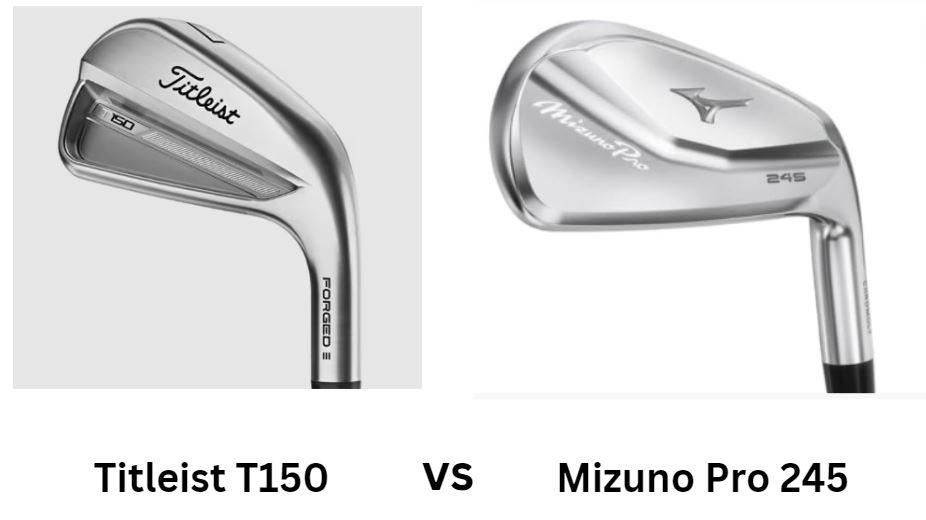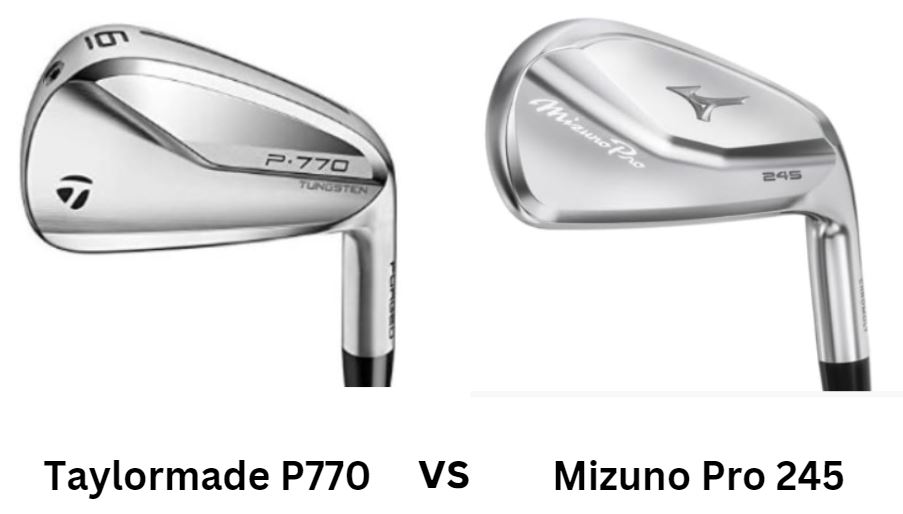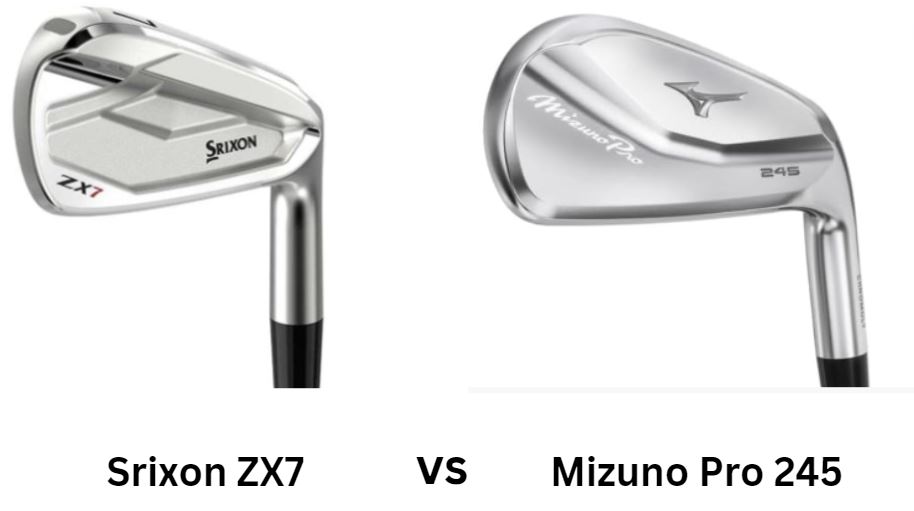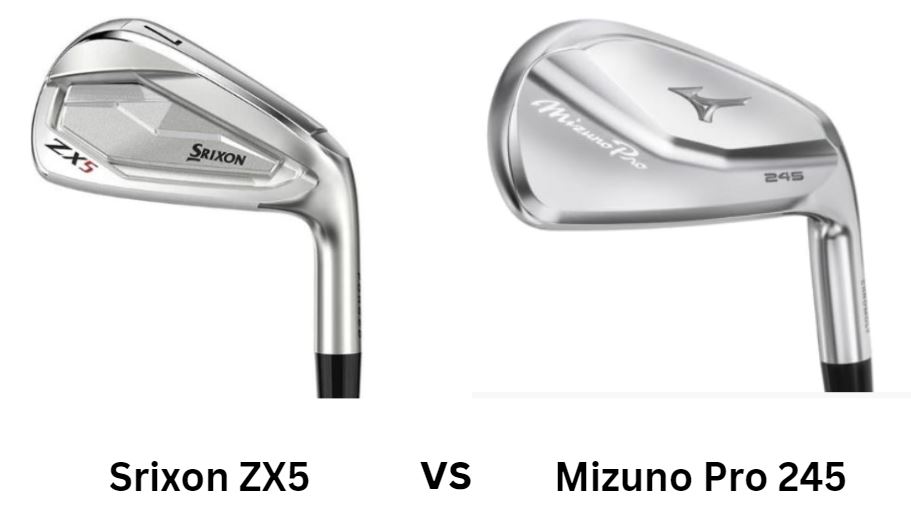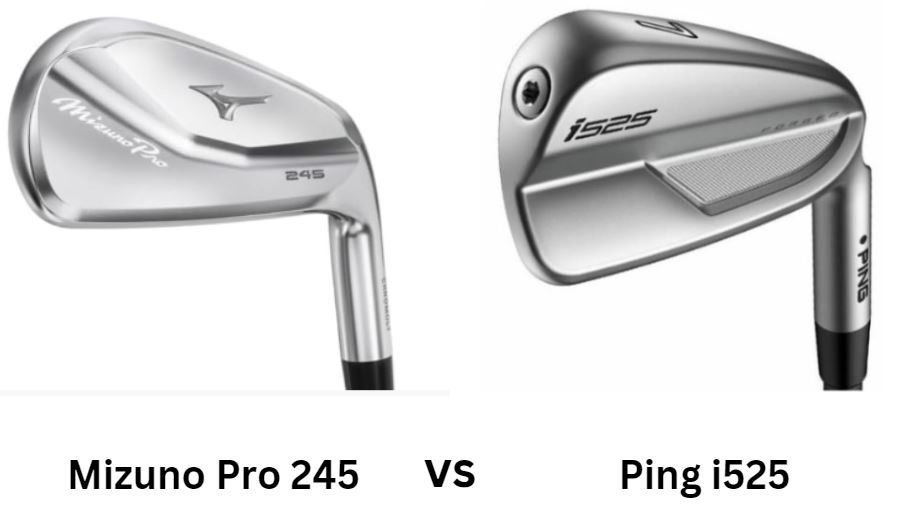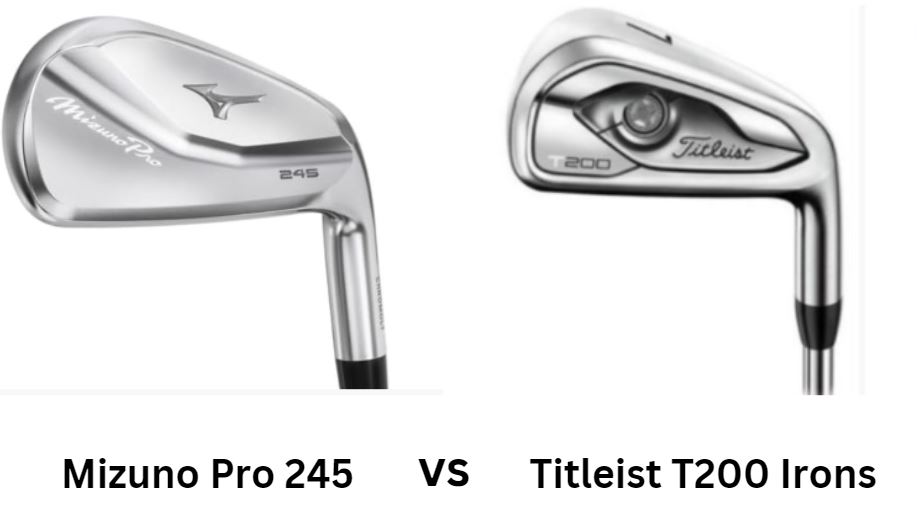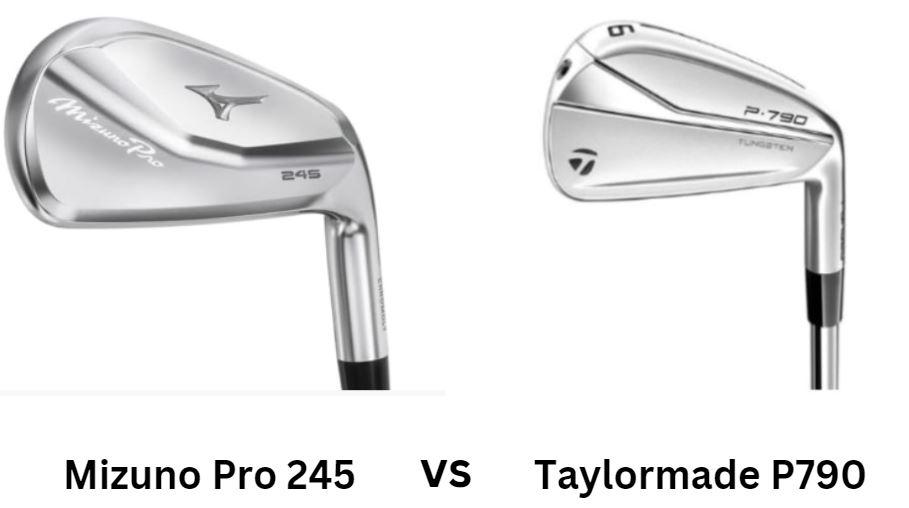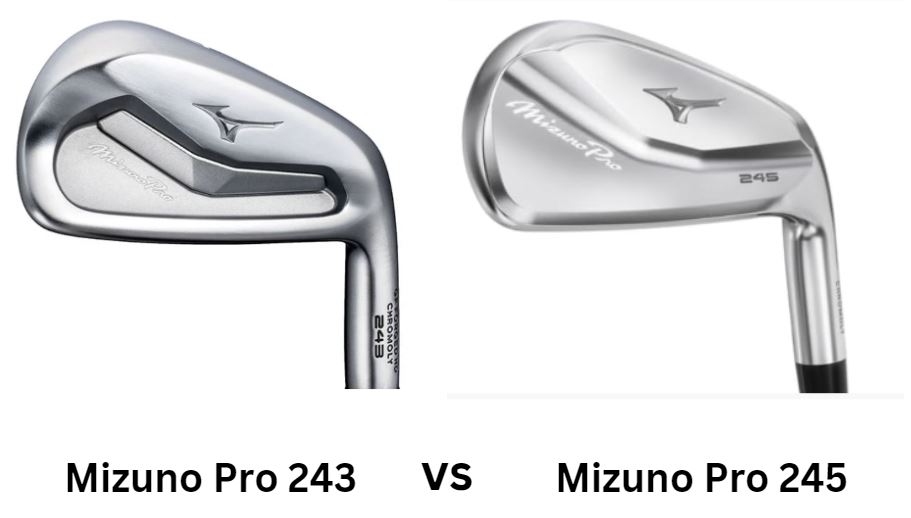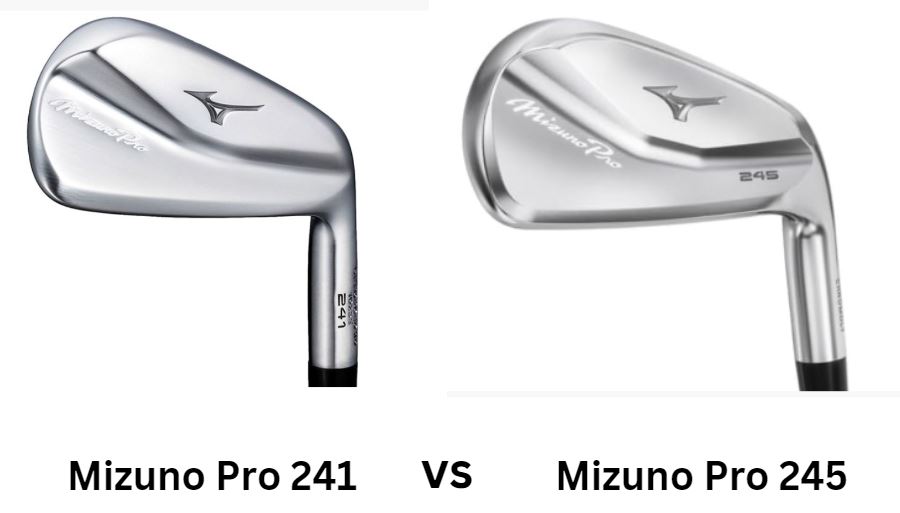Cast Irons Vs Forged – What’s Better And For Who?
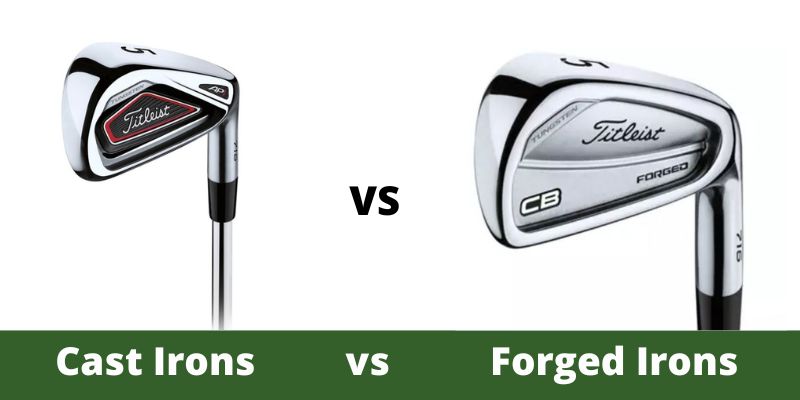
Golf can get a bit technical sometimes, particularly if you are new to the game.
Not all golf clubs are made in the same way, and how they are made can have a significant impact on how the ball reacts when hit by the golf iron.
In this article we will discuss Forged Irons and Cast Irons these are both types of golf iron. However, it can be hard to understand what they are and how they differ from each other.
Keep reading and we will be talking about forged irons vs cast irons – their differences and advantages in depth so that you’ll soon be an expert.
Cast Irons Vs Forged Irons: An Introduction
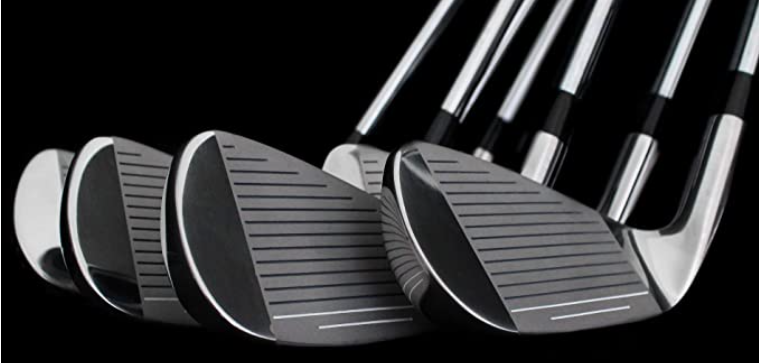
Cast irons are made by pouring molten iron into a mold. This process is cheaper and simpler than forging, and it results in a club with a larger sweet spot.
Forged irons, on the other hand, are made by heating and shaping iron into the desired shape. This process is more expensive and time-consuming, but it results in a club that’s more forgiving on off-center hits.
What Are Cast Irons?
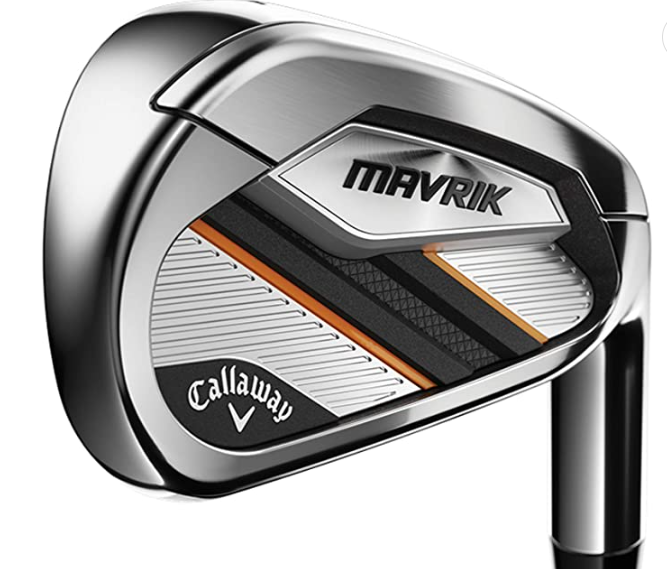
Cast irons are made by pouring molten iron into a mold. This process is cheaper and simpler than forging, and it results in a club with a larger sweet spot.
If you are a beginner or high-handicapper, then cast irons are a good option. They are more forgiving than forged irons, so you’ll get better results if you don’t have perfect swing curvature.
What Are Forged Irons?
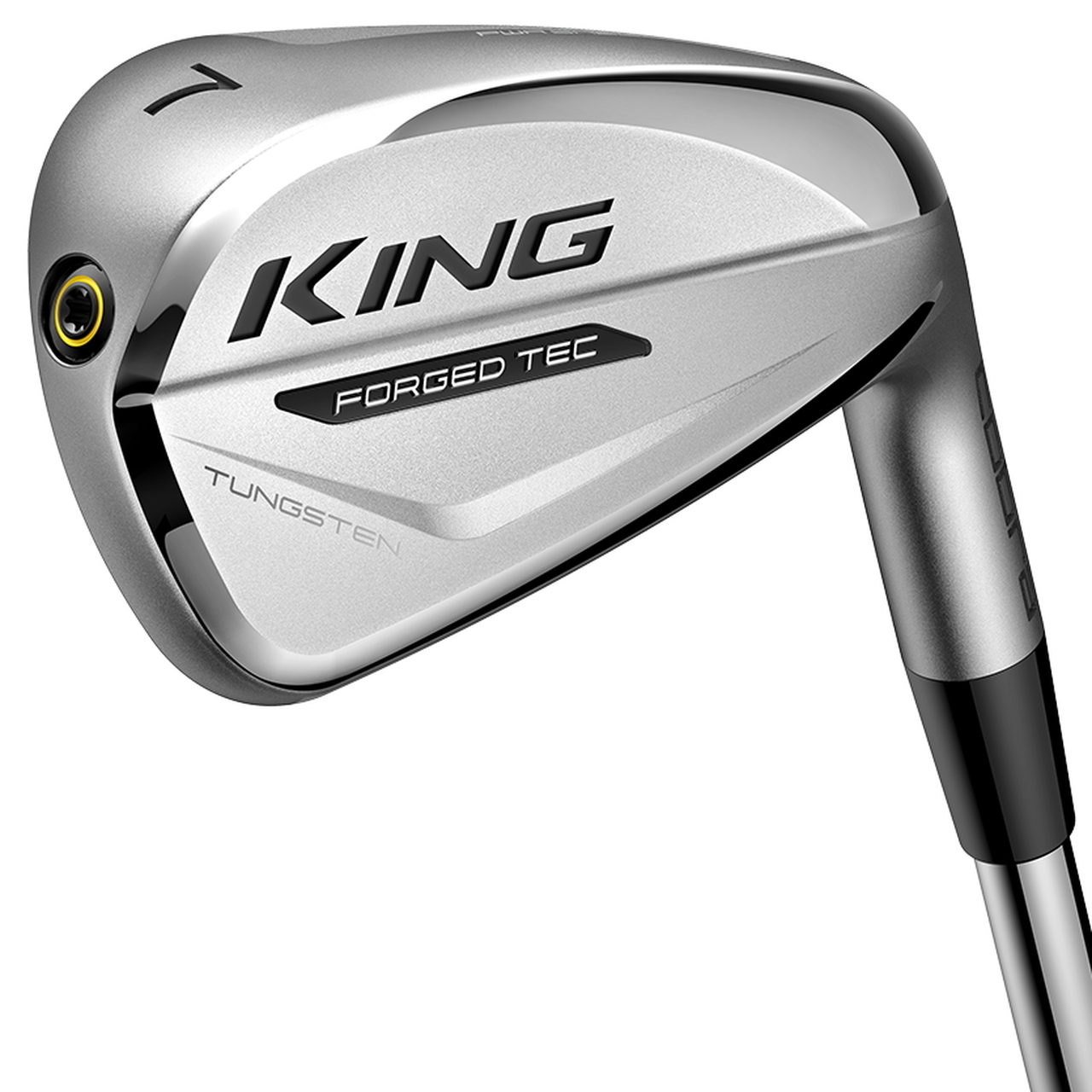
Forged irons are made by heating and shaping iron into the desired shape. This process is more expensive and time-consuming, but it results in a club that’s more forgiving on off-center hits.
Forged irons are better for low-handicappers and professionals who can make consistent, center strikes.
Cast Vs Forged Irons: An Overview
Cast irons are made by pouring molten iron into a mold. This results in a club head with more consistent weight distribution and feel.
Forged irons, on the other hand, are made by hammering a piece of iron into shape.
If you want a club with more consistent performance and feel, then cast irons are the way to go.
However, if you are a professional who is looking for something with a softer feel and a more forgiving sweet spot, then forged irons are the better option.
Ultimately, it comes down to personal preference. We suggest you try out both types of clubs and see which suits your game best.
Take some time to watch this YouTube video which explains the differences between Cast Iron and Forged Iron golf clubs:
https://www.youtube.com/watch?v=H9qTcAyMuPU
What Are The Advantages Of Cast Iron Golf Clubs?
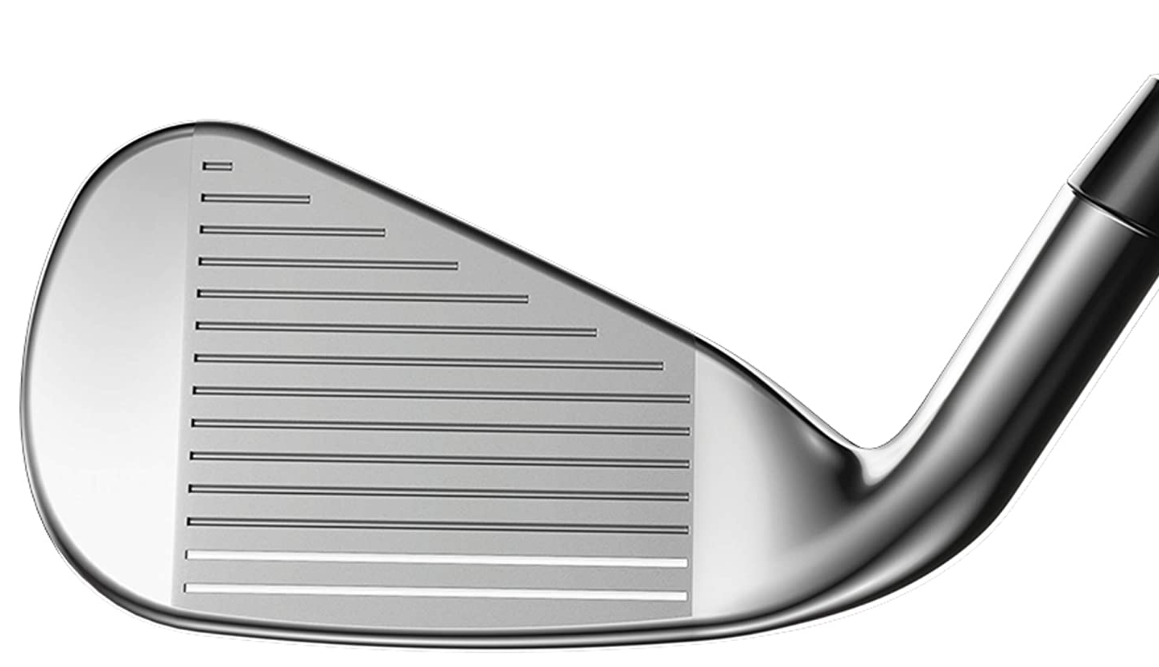
There are many benefits to playing with cast irons. They are very forgiving, meaning that if you don’t hit the sweet spot perfectly, the club will still make decent contact with the ball.
This results in straighter, more consistent shots.
Cast irons are also typically cheaper than forged irons. And because they are not as fragile as forged irons, they tend to hold up better to wear and tear.
if you are a casual golfer or someone who is just starting, then cast irons may be a better option for you. They are often more affordable and easier to hit well.
What Are The Disadvantages Of Cast Iron Golf Clubs?
There are a few disadvantages to playing with cast irons. They can be more difficult to control and aren’t as forgiving as forged irons.
They also don’t have the same feel as forged irons. Cast irons can also be more difficult to work with if you are trying to make adjustments to your game.
Who Should Use Cast Irons And Why?
If you are a beginner or high handicapper, then cast irons are going to be the better option for you.
They are more forgiving on mis-hits and will help you to get the ball in the air more easily.
If you are unsure which type of iron to go for, then it’s always best to speak to a professional and get a fitting before making a purchase.
What Are The Advantages Of Forged Iron Golf Clubs?
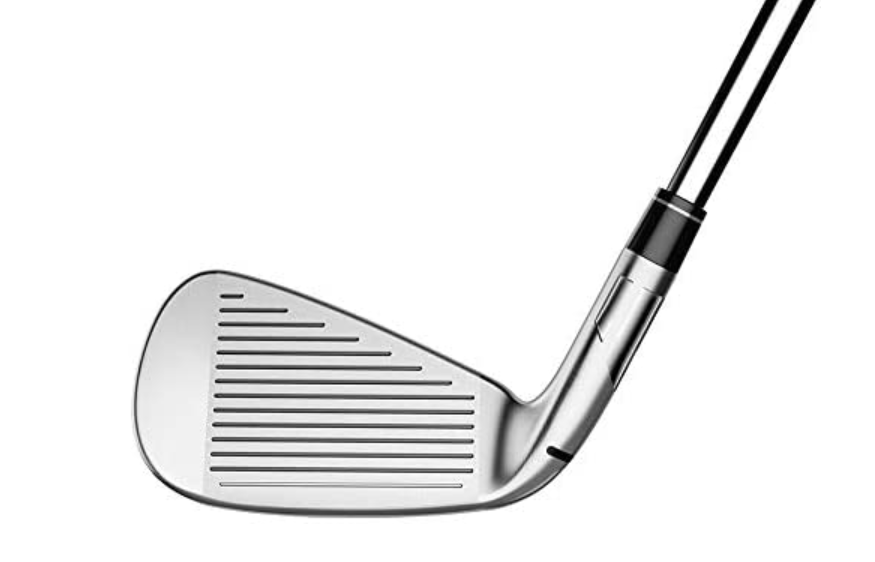
There are a few key advantages that forged irons have over cast irons. Firstly, forged irons are generally more precise and have a tighter grain structure.
This results in more consistent performance and feel of the club. If you want the absolute best performance and you’re willing to pay for it, forged irons are the way to go.
Secondly, forged irons are typically more forgiving on mis-hits than cast irons. The weight distribution in forged clubs is also more evenly distributed, which leads to better sound and feel on impact.
Finally, many golfers believe that forged clubs simply look and feel better than their cast counterparts.
If you are a serious golfer who is looking for the best possible performance from your clubs, then forged irons are the way to go.
They will provide you with the most consistent results and the best feel.
What Are The Disadvantages Of Forged Iron Golf Clubs?
There are a few disadvantages of forged irons to consider. First, they can be more expensive than cast irons.
Second, they require more maintenance and care. They also can be more difficult to hit consistently because of their smaller sweet spot.
Who Should Be Using Forged Irons And Why?
Forged irons are typically used by low-handicap golfers because they provide more control and accuracy.
They are also often used by players with faster swing speeds, as they can generate more power with forged irons.
If you are someone who prefers a softer feel when you hit the ball, forged irons are a good option for you.
Ultimately, it depends on the individual golfer’s needs and preferences. It’s up to each golfer to decide whether forged or cast irons are better for them.
Frank Thomas, former USGA technical director believed that forged irons could be used by anybody.
Which Is More Expensive: Cast Irons Vs Forged Irons
When it comes to price, cast irons are more affordable than forged irons.
If you are looking for a new set of irons on a budget, cast irons are the way to go.
However, forged irons tend to offer better performance and feel, so they are worth the extra investment if you are a serious golfer.
Which Is More Durable: Cast Irons Vs Forged Irons
Cast irons offer better long-term durability and distance than forged irons. Because forged irons are produced using softer metal.
On the other hand, cast irons are produced with heavier metal. This increases their durability properties.
Which Offers More Distance: Cast Irons Vs Forged Irons
Although cast irons are more durable and better performing for some golfers, forged irons cover a longer distance.
However, this distance gap is only noticeable when professionals hit it. For amateurs and recreational handicappers, the gap in the distance is negligible.
Which Offers More Workability, Feel & Control: Cast Irons Vs Forged Irons
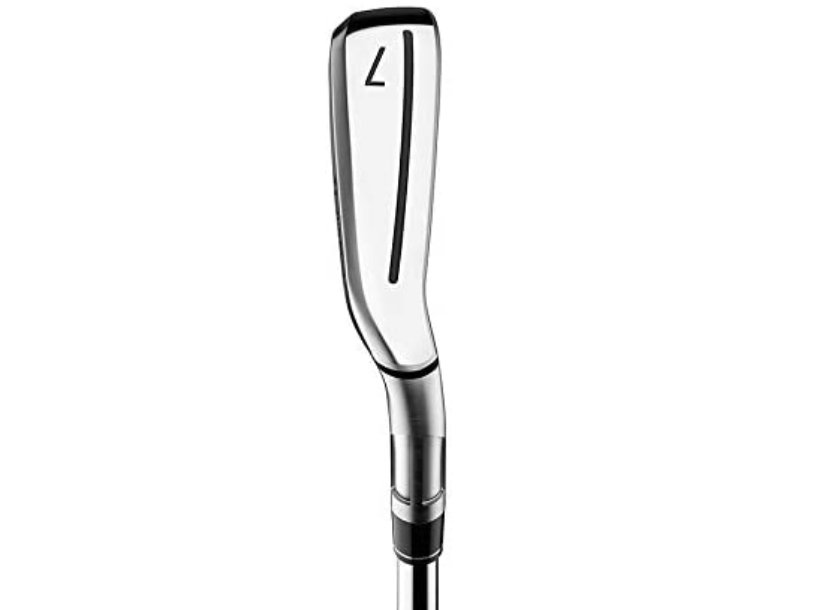
Cast irons provide the golfers with a lot of workability and control. These irons offer a solid feel.
On the other hand, forged irons are also good for shaping the shots and accuracy. These have a soft feel.
Overall, both have good workability, feel, and control.
Which iron is better? This can also depends on the golfer’s playing style and how long they have been playing the game.
Cast Irons are great for beginners and mid handicappers, while forged irons are great for better players to shape their shots.
Which Is Better – Cast Or Forged Irons?
The answer to this question depends on a few factors, including what you value most in your golf clubs.
If you are looking for the best possible performance, forged irons are usually the way to go. They offer more control and accuracy than cast irons, and they are also generally more forgiving on mis-hits.
However, they can be more expensive than cast irons, so if you’re on a budget, cast irons may be the better option.
There’s no right or wrong answer when it comes to choosing between cast and forged irons – it ultimately comes down to personal preference.
If you’re unsure of which to choose, it might be a good idea to try out both types of clubs before deciding.
Should All High Handicappers Use Cast Irons?
A lot of golfers believe that all high handicappers should use cast irons.
They think that these clubs are more forgiving and will help them to improve their game. However, this is not always the case.
There are some benefits to using cast irons, such as the fact that they are typically more affordable than forged irons.
They are also often easier to find on the used market. However, they are not necessarily the best clubs for all high handicappers.
Forged irons tend to offer a better feel and feedback than cast irons. This can be beneficial for high handicappers who are working on their iron play.
Should All Low Handicappers Use Forged Irons?
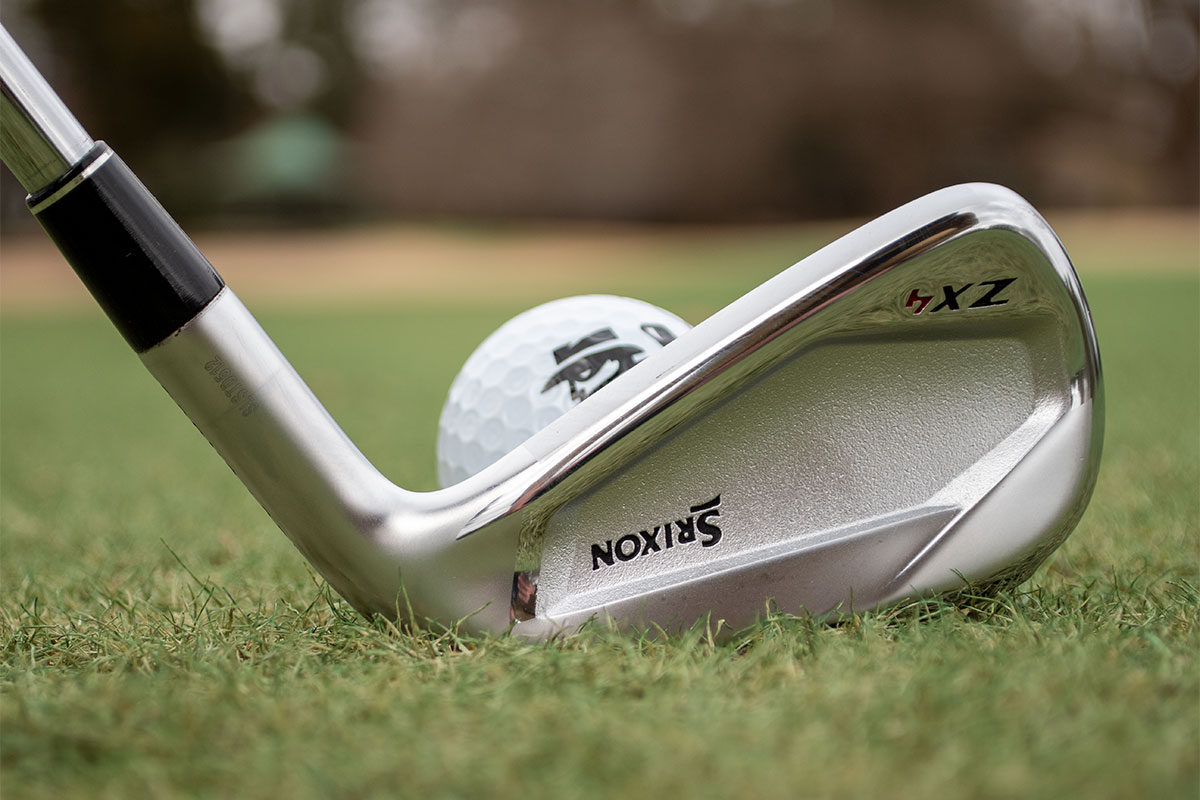
Some golfers believe that all low handicappers should use forged irons.
The reasoning behind this is that forged irons provide more precision and control than cast irons. Additionally, forged irons tend to have a softer feel, which many golfers prefer.
There are also some drawbacks to using forged irons. Forged irons are typically more expensive than cast irons, so they may not be the best option for budget-minded golfers. Ultimately, the decision of whether to use forged or cast irons is a personal one.
Can High Handicappers Use Forged Irons?
The answer, according to most golf experts, is yes! Forged clubs are designed for players with a high swing speed and can help them generate more power and accuracy.
However, it is important to note that not all high handicappers will benefit from using forged clubs.
If you have a slow swing speed or are struggling to hit the ball consistently, then forged clubs may not be the right choice for you.
If you are unsure, we suggest that you consult a golf professional to find out if forged clubs would be a good fit for your game.
Are All Cast Irons Game Improvement?
Not all cast irons are created equal. There are many different types of cast irons on the market, each with its specific purpose and target audience. These can be Game Improvement irons or Player’s irons.
Forged irons, on the other hand, are generally geared towards more experienced players who are looking for more control and precision from their clubs. Therefore, most of the forged irons are Player’s irons.
Are All Forged Irons Players Irons?
Not all forged irons are created equal. Forged cavity back irons are made by forging a single piece of metal into the shape of an iron head.
The cavity in the back of the head helps to redistribute weight for added forgiveness.
These irons are a good choice for players who want a combination of forgiveness and control. An example of a forged cavity back iron is TourEdge Exotics CNC Forged Irons
Are Cast Irons Getting Better For Feel And Workability?
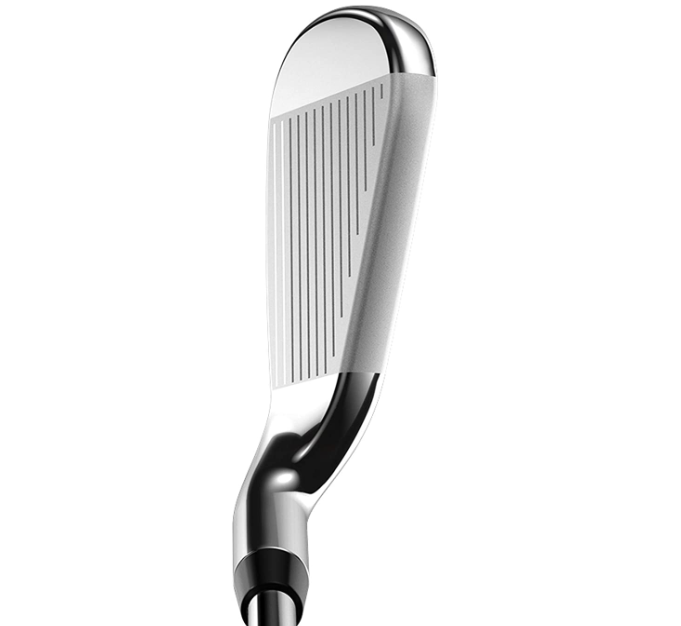
There’s been a lot of discussions lately about whether cast irons are getting better for feel and workability.
Some say like My Golf Spy that they are, while others contend that forged irons are still superior in those areas. So, which is it?
Well, the answer may depend on who you ask. If you ask a professional golfer, they’ll likely tell you that forged irons are still the way to go.
That’s because they can get more precision and control with forged irons than with cast irons. Amateur golfers, on the other hand, may find that cast irons are easier to hit and produce more consistent results.
So, it comes down to what you are looking for in an iron.
Are Forged Irons Becoming More Forgiving?
There’s been a lot of talks lately about forged irons becoming more forgiving. So what’s the story? Are they becoming more forgiving or is it just hype?
Here’s what we know. Forged irons are made by taking a piece of steel and pounding it into shape. This process allows for more precise shaping of the club head, which can lead to better performance.
However, forged irons can also be less forgiving than their cast counterparts. That’s because the manufacturing process can sometimes result in thinner walls and a smaller sweet spot.
We think it has to do with the fact that manufacturers are constantly looking for ways to improve their products. And as golfers become more skilled, they’re demanding clubs that will help them score lower.
Do All-Pros Use Forged Irons?
No, not all professional golfers use forged irons.
While many pro golfers do prefer forged irons for their precision and feel, some pros prefer cast irons for their forgiveness and distance.
It comes down to personal preference and what feels best for the golfer.
Forged Irons Vs Blades
Forged irons can be Game Improvement irons or Player’s irons. Blades are the most common type of forged irons.
There is more weight in the center of the clubhead. Currently, shallow cavities are made in forged blades to improve accuracy.
Our Favorite Cast Irons
Callaway Mavrik Iron
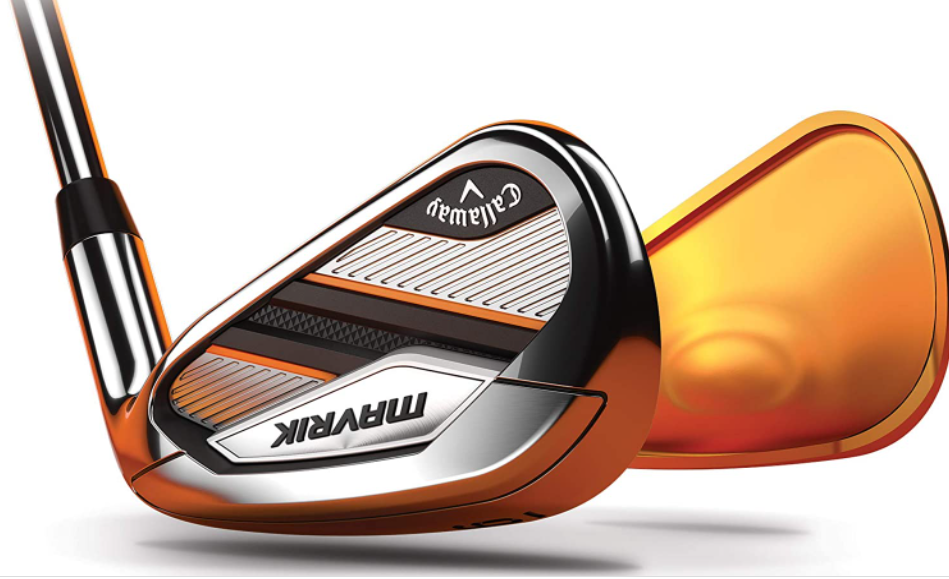
The Callaway Mavrik irons are top-rated cast irons because of their flash face cup, tungsten energy core, and urethane microspheres.
It is a high-performance cast iron that provides a decent amount of accuracy, distance, and feel.
Pros
- Higher launch angle
- Better spin rate
- Larger club head
- Ideal for high handicappers
Cons
- Adequately forgiving
Overall Score: 96/100
Check Out More Reviews Here:
Our Favorite Forged Irons
Taylormade Sim2 Max Iron
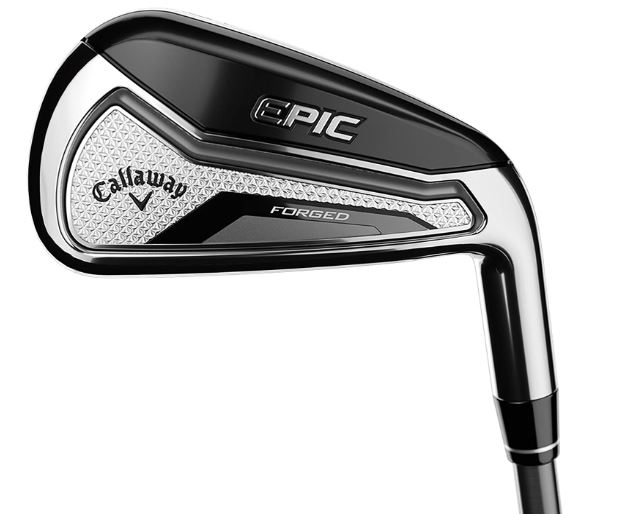
The Callaway Epic Forged Irons look absolutely stunning and bring a wealth of technology to the forged iron market.
The suspended tungsten weighting and Variable face technology make these irons suprisingly fogiving yet still workable for the better players.
An all round qualoty set of irons.
Pro
- Look Great
- Forgiving And Workable
- 360 face Cup Technology For More Ball Speed
Cons
- Shaping the shot might be difficult for high handicappers
Overall Score: 94/100
Check Out More Reviews Here:
Conclusion
So, what’s the verdict? Which clubs are better – cast irons or forged irons, and which one will be best for your game?
The answer, as with most things in golf, is that it depends. Each type of club has its advantages and disadvantages, and ultimately, it’s up to the individual golfer to decide which type is right for them.
There are so many variables in golf and the golf swing is different for every golfer. What works for one, might not work for another.
If you are a beginner or high-handicapper, cast irons may be the way to go. They are more forgiving on miss-hits, and they are typically less expensive than forged irons.
If you are a low-handicapper or serious golfer, forged irons may be a better option. They tend to offer more control and feel and can help you shape shots more precisely.
At the end of the day, it’s important to try out both types of clubs before making a decision. We would advise visiting a golf professional or trained golf club fitter and getting a full breakdown of what they think will be best for your game.

